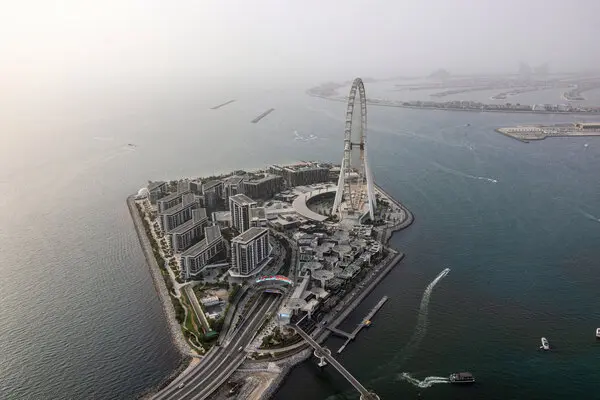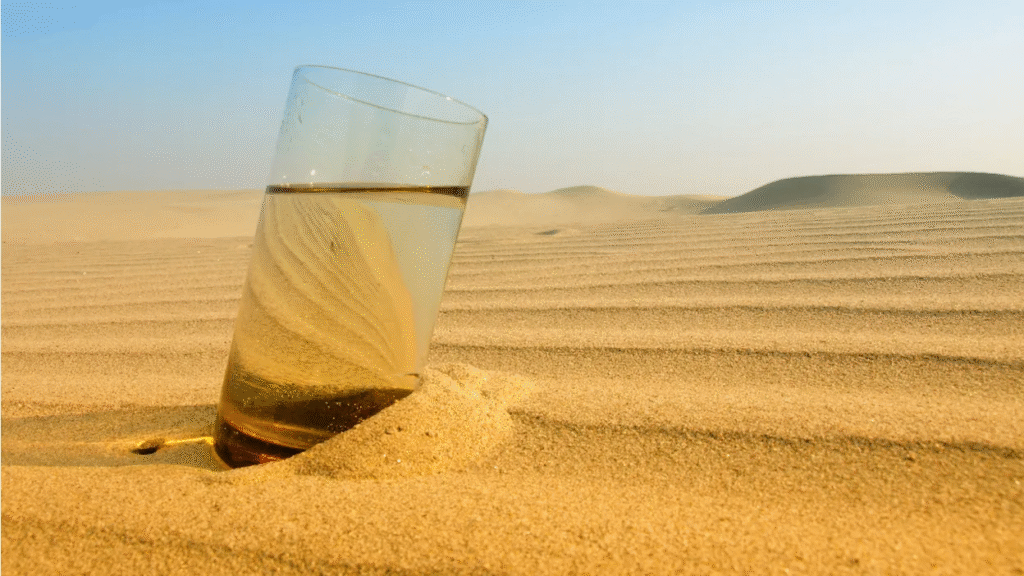
In the middle of a vast desert, Dubai has built one of the most advanced water systems in the world. While the city is known for its futuristic skyscrapers and luxury living, its greatest achievement may be something less glamorous but more essential—desalination.
Dubai depends almost entirely on desalination to provide clean drinking water for its over 3.5 million residents and millions of visitors every year. With no rivers or lakes and very limited rainfall, the city has turned to the sea. Desalination is the process of removing salt and impurities from seawater to make it drinkable. Without it, Dubai as we know it would not exist.

Dubai is part of the United Arab Emirates (UAE), a country with some of the lowest natural freshwater resources in the world. Annual rainfall is minimal, and underground aquifers are limited and mostly brackish (salty). With rapid urban development, population growth, and booming tourism, water demand has skyrocketed.
To meet this demand, Dubai has invested heavily in desalination technology over the past decades. Today, nearly 99% of Dubai’s water supply comes from desalinated seawater. The remaining 1% comes from treated groundwater or imported bottled water.
This makes Dubai one of the most desalination-dependent cities on Earth.
Dubai uses mainly thermal desalination and reverse osmosis (RO) methods.
Dubai is also testing hybrid plants that combine both technologies to save energy and reduce costs.
Dubai’s biggest desalination facilities are located along the coast and work around the clock.
The Dubai Electricity and Water Authority (DEWA) is the main body overseeing water production in the emirate. DEWA is now moving toward greener desalination by using solar energy and clean technologies to power its plants.
Dubai’s green strategy aims to reduce the environmental impact of desalination, as traditional methods consume large amounts of fossil fuels and produce high greenhouse gas emissions. The city’s Clean Energy Strategy 2050 includes making desalination plants 100% renewable by mid-century.
By 2030, Dubai wants all desalinated water to be produced using solar energy and waste heat, significantly cutting costs and emissions.
While desalination has been a life-saver, it also comes with challenges:
Dubai is not stopping at just supplying water—it is investing in innovation and efficiency to future-proof its system:

Desalination is more than just a technical solution for Dubai—it’s a foundation of survival. As climate change worsens and global freshwater sources shrink, Dubai’s model is attracting international attention. Cities around the world are looking at Dubai’s desalination success to design their own water-resilient systems.
At the same time, Dubai must continue to balance progress with sustainability. Green desalination, efficient water use, and environmental care are now more important than ever.
Dubai’s desert may be dry, but its ambition flows strong—turning salty seas into safe sips, one drop at a time.
Dubai’s desalination journey is a story of technology, survival, and vision. In one of the world’s driest places, the city has mastered the art of making water from the sea. As it looks to a cleaner and smarter future, Dubai’s model could help the entire planet rethink how we access and protect our most precious resource.
Read More:- Deyaar’s Latest Announcement Shakes Up the UAE Property Market
